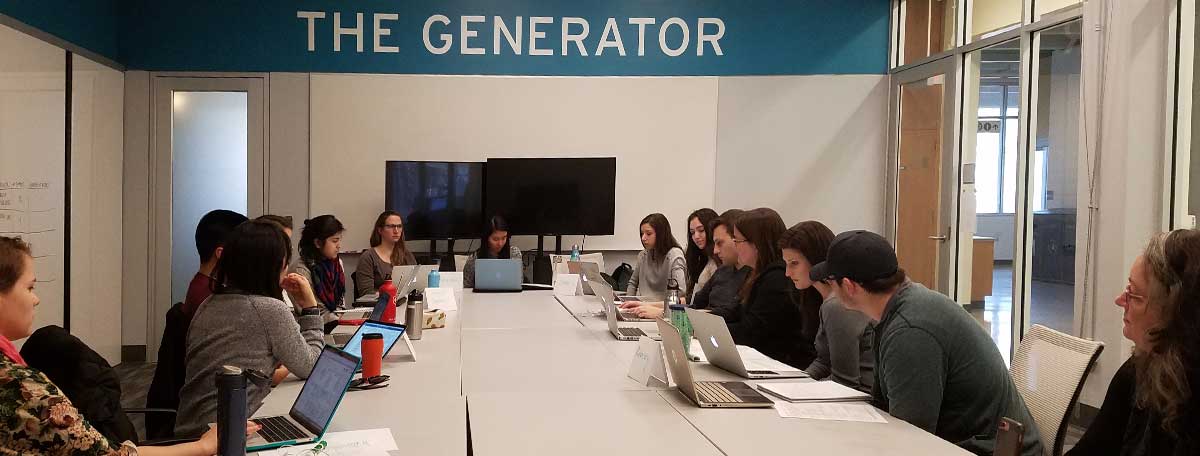
Center on Risk
A university‐wide research, teaching, and engagement program focused on the detection, analysis, regulation, and mitigation of risk.Research and Publications Join Our Newsletter
Who we are
The Duke Center on Risk is a multidisciplinary collaboration focused on improving society’s capacity to analyze, anticipate, mitigate, and adapt to risks. Under the leadership of Professors Jonathan Wiener (Law, Nicholas, and Sanford Schools) and Mark Borsuk (Pratt School of Engineering), and Research Director Tyler Felgenhauer, the Duke Center on Risk builds on the university’s already significant risk-related teaching and scholarship by fostering new partnerships across campus including the schools of engineering, law, policy, business, environment, medicine, nursing, and arts and sciences, as well as institutes and initiatives.
Science & Society’s operational and financial investment in the Center has allowed for the creation of new courses, events like the Risk Watering Hole series, and scholarship on Global Risks.

What inspires us
We seek to develop innovative methods, technologies, policies, and practices to confront the risks faced by society, both familiar and emerging, including, e.g., climate change, pollution, pandemic disease, food safety, cyber‐attacks, financial shocks, accidents, and terrorism. Key research topics include:
Extreme catastrophic risks: How do people perceive, gauge, and respond to risks with very low probability and catastrophic consequences, and how should this influence decision-making?
Interconnectedness, complexity, and tradeoffs: How can we better manage ancillary impacts – risk-risk tradeoffs such as co-benefits and countervailing harms – in complex, interconnected systems?
Ambiguity and deep uncertainty: How can society assess and plan for risks for which the causal mechanisms and probabilities of occurrence are poorly understood?
Resilience and adaptation: How can organizations develop resilient systems that dynamically adjust to new information, effectively recover from shocks, and respond positively to new opportunities?
Learning and adaptive regulation: How can regulatory systems be designed to keep up with evolving science, technology, and values, and incorporate learning to review and improve policies over time?
What We Do
We are working to grow an intellectual community that shares interests in risk by:
- Hosting a series of Risk Watering Holes to bring scholars together in a social setting to give lightning talks that help identify shared academic interests and opportunities for collaboration.
- Convening Head-to-Head events to present multiple perspectives on timely topics involving risk.
- Inviting prominent visiting risk scholars to campus for seminars, meetings, and exchange of ideas.
- Providing scholarships to students to present at professional events, e.g., the Society for Risk Analysis.
- Leveraging Duke’s distinctive multi-disciplinary educational programs (e.g., Bass Connections, Data+, Story+, DukeImmerse, DukeEngage, FOCUS, Duke Conversations) to explore topics in risk– such as our ongoing series of “DeCIPHER” Bass Connections projects.
- Exploring the opportunities and demand for new degree or certificate programs in risk at both the undergraduate and graduate/professional level.
- Convening public sessions in the Triangle and in DC to promote our policy-relevant risk research.
- Assisting with student career choice and job placement by hosting events with Triangle-area professionals in risk-related fields.
- Providing support to newly-formed multi-disciplinary research groups to plan and prepare extramural funding proposals and to subsequently carry out these projects.
Recent Risk Center Events
Mar 25th, 2025
Wildfires, Climate Change, Risk, and Insurance
Feb 25, 2025
Watching the Disaster Unfold: The Production and Consumption of Live-Streamed Extreme Weather Footage
Oct 16th, 2024
A Conversation On Financial Markets Risk, Political Risk, & Their Interplays Through Political Event Betting Markets In The US
Feb 15th, 2024
Risk Science for Climate Resilience: A Duke Climate Collaboration Symposium
April 19th, 2023
The Duke Center on Risk: 3rd Climate Change Risk Watering Hole
March 8th, 2023
The Duke Center on Risk Sixth Watering Hole: Climate Change Risk Il
Partner Initiative: Risk Science for Climate Resilience (RESILE)
RESILE is an interdisciplinary, high-impact research initiative that integrates data science and modeling, risk assessment and decision theory, and economic and policy analysis to develop and promote innovative and actionable strategies, products, and practices to address climate risk. By disseminating the knowledge and tools produced by these efforts to communities, policymakers, businesses, and individuals, RESILE enhances climate decision-making and foster resilience on a national scale.

